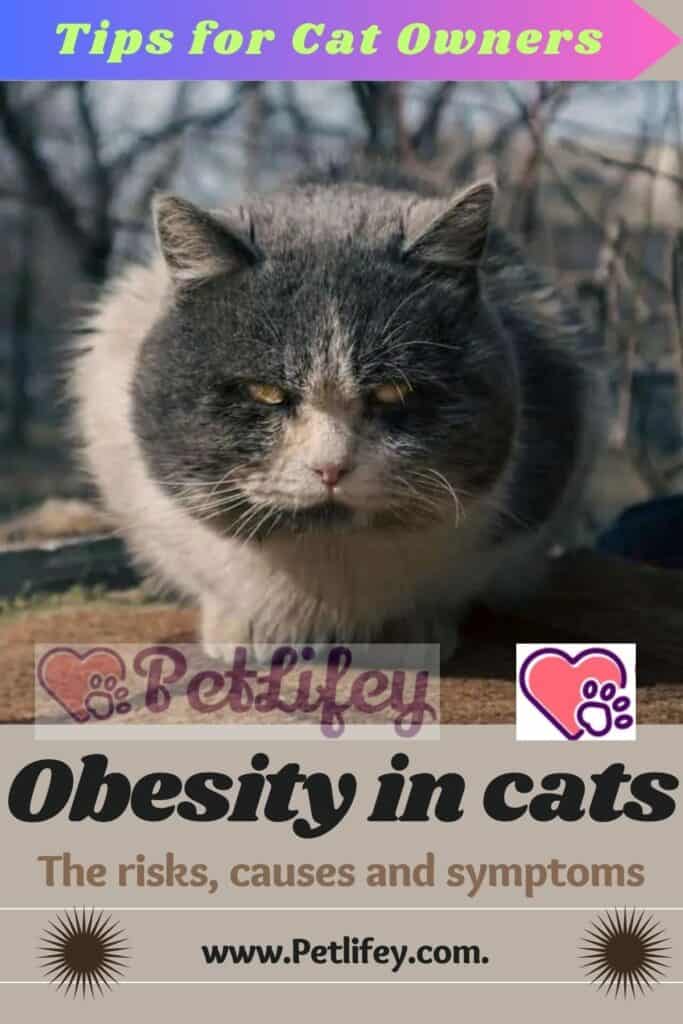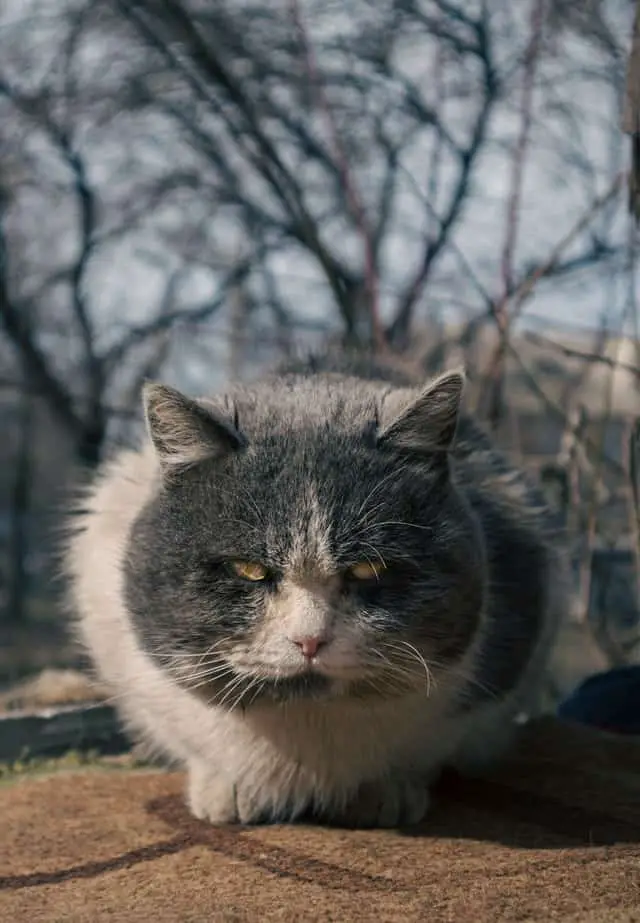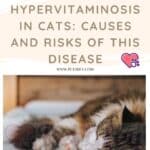
Cat obesity is a health hazard: if you have a cat at home, you must know the risks, but also the causes and symptoms that should not be underestimated in obese cats.
Obesity is a very dangerous pathology that affects almost half of domestic dogs and cats: the cause of many diseases and related problems, it especially puts at risk cats who tend to be lazier and risk gaining weight more easily.
We have explored in another article the theme of nutrition and exercises best suited to the care of the obese cat, while here we deal with what may be the causes, symptoms and risks related to obesity in cats.
Cats and obesity: what are the causes and related risks?

Obese cats are those whose overweight exceeds the ideal body weight by 20%: a very common problem among adult domestic felines, especially between the ages of 5 and 11, obesity is a disease to be prevented and treated in as timely as possible.
Causes of Obesity in Cats
Although there are no specific predetermined causes for the development of a pathological condition of obesity in felines, there are some factors that make the animal predisposed to the problem:
– Gender and age: male cats, especially if neutered, tend to become more easily obese. Similarly, as the cat gets older the risk of obesity increases: prevention must begin as early as the age of two.
– Breed: excluding the Max breed, which is particularly prone to obesity, common non-purebred cats are twice as likely to become obese.
– Environmental factors: if a cat lives in the same house with other animals or if it is used to going out during the day, it is less likely to become obese.
– Nutrition and physical activity: just like humans, cats who follow a healthy and balanced diet and exercise keep their weight more easily.
– Endocrine diseases and problems: there are pathologies such as hypothyroidism that can increase the risk of obesity in cats. The same goes for chemical contraceptives, which make neutered cats more likely to gain weight.
– Behavior of the owner: sometimes, even if we love our cat madly, we make involuntary mistakes that can negatively affect its weight: leaving too much food available in the bowl, offering too many snacks and morsels, neglecting play and movement.
Risks and diseases associated with cat obesity
The greatest danger of feline obesity lies in related diseases, ailments and health problems. Here is a list of the major risks facing the cat suffering from obesity:
1. Heart and cardiovascular diseases> among the most frequent causes of death in both humans and animals, heart problems and cardiovascular diseases are much more frequent in obese or overweight cats.
2. More stress> Stress in cats is a very serious problem, which affects their entire well-being. Obesity is a cause of chronic stress, which affects feline health and life expectancy.
3. Joint problems> excessive weight on the paws can cause lameness or arthritis in cats: the joints are forced to bear too heavy a load.
4. Breathing problems> when cats accumulate fat in the abdominal area, the diaphragm is pushed upwards and restricts the expansion capacity of the lungs: thus there is a risk of breathing difficulties which increase in brachycephalic cat breeds, such as the Persian.
5. Diabetes mellitus> actually, diabetes in cats is frequent even with only a counterweight condition: obese cats are however even more at risk of developing insulin resistance.
6. Medical Complications> If an obese cat needs surgery, they are more likely to experience medical complications even for simple procedures such as feline neutering.
7. Skin diseases> According to some studies, there is a correlation between obesity and skin diseases in cats: this risk is probably linked to difficulties in self-grooming due to being overweight.
8. Less physical activity, warmer> just like obese dogs, cats that weigh too much tend to get more tired and suffer more from the heat: don’t forget to stimulate your feline friend to exercise, with suitable toys to him.
9. Difficulty in giving birth> an obese or overweight cat can risk problems associated with birth of various kinds, which make it difficult for kittens to be born. If the obesity is very severe, the vet may suggest a termination of the pregnancy.






